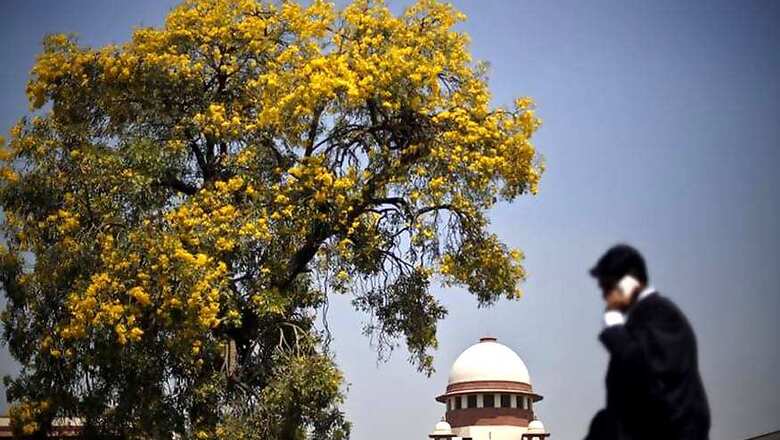
views
New Delhi: The Supreme Court on Wednesday refused to initiate a debate over the manner in which a Hindu woman should make her consent explicit for marriage.
A bench led by Chief Justice of India Dipak Misra maintained that the provisions of the Hindu Marriage Act were clear.
There is neither a need nor an occasion to interpret the provisions for issuing a declaration to clarify the law, said the bench, also comprising Justices AM Khanwilkar and DY Chandrachud.
Senior advocate Indira Jaising, arguing for a PIL petitioner, questioned validity of the provisions in the Act that considered only insanity and unsoundness of mind as grounds to nullify a valid consent.
She said the top court should issue a declaration that a consent for a marriage would mean no consent unless it is free and valid consent, expressed explicitly by a woman at the time of her wedding.
"There is lack of clarity in the Act. A consent must be a requisite for a valid marriage and this Court should make this declaration," Jaising, assisted by advocate Sunil Fernandes, argued before the bench.
But the bench remained unimpressed with the legal submissions.
The judges cited Sections 11 and 12 in the Act to buttress the point that consent is already manifest under the pertinent provisions of the statute.
"Section 11 makes a marriage voidable at the instance of parties for want of valid consent. Similarly, Section 12 holds it is not a valid consent if it has been obtained by fraud and it becomes a ground for annulment of a marriage. Clearly the scheme of the Act is such that it postulates there is a valid consent," the bench told Jaising.
When the senior lawyer pointed out that all ceremonies for a marriage under the Act are uncodified and that these rituals cannot be a ground to presume a valid consent, the bench retorted that the law is clear that there are settled propositions which cannot be disturbed by such arguments.
The Court also declined to entertain any argument on the manner in which ceremonies take place in a marriage.
Referring to its judgment in Hadiya's case, the bench said that a writ court cannot go into validity of consent and that it will have to be established before appropriate court on the basic facts of each case.
It added that there is a remedy to approach a civil court for dissolution of marriage if consent is not genuine.
The bench made these remarks while hearing the PIL by a 26-year-old woman from Karnataka, who alleged she was forcibly married by her family.
While the bench suggested Jaising that she should approach a civil court if she wanted the marriage to be annulled, it agreed to provide protection to her.
The Court directed Delhi Police to ensure her safety, and issued notices to Karnataka government, and her family. The bench will hear the case next on May 5.




















Comments
0 comment